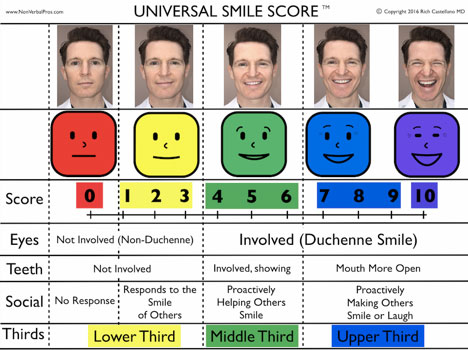Smiling Off The Charts
Few can deny that conversations about patient satisfaction are continuing to grow and intensify. More and more leading providers are stressing a needed shift in attitude from treating patient care as a transaction toward acknowledging it as a participatory experience. Fortunately, one notable surgeon is leading the charge.
In an industry where only 251 out of more than 3,500 U.S. hospitals received a 5-star rating on patient satisfaction, Tampa-based facial plastic surgeon Dr. Rich Castellano is incorporating non-verbal communication training to further his practice’s patient satisfaction ratings. He marks the forefront of this relatively new training.
Making himself known as “The Smile Doctor,” Castellano has dedicated his practice to researching the effects of a doctor’s non-verbal communication on a patient’s quality of care. The author of The Smile Prescription, Dr. Castellano also travels the country to train doctors, healthcare providers, and entrepreneurs, and has been asked to teach students the power of non-verbal communication at his alma mater, the University of South Florida College of Medicine. “Patients are more proactive and trusting when they feel connected on an emotional level to a doctor,” Dr. Castellano reminds us, insisting, “this can greatly impact a treatment plan and improve the quality of care.”
Most notably in his material is his innovative Universal Smile Score scale, mimicking the ubiquitous 1-10 pain scale, to outline the facets and effects of differing intensities of smiles. Also ranked from 1-10, facial expressions ranging from blank stoicism to gut-busting laughter are broken down into eye involvement, visible teeth, and whether or not the face is socially encouraging laughter or smiling from a patient’s response. “At the end of the day, this is really about kindness and compassion,” he says, marking a bold and optimistic call to action for health providers.
It all boils down to a force of good, pushing proper bedside manner back to the forefront of patient care and doctor-patient communication. Dr. Castellano reminds us that healing is ultimately about experience and process, not just transaction, and that health care is about people and their emotional wellbeing, first and last.




